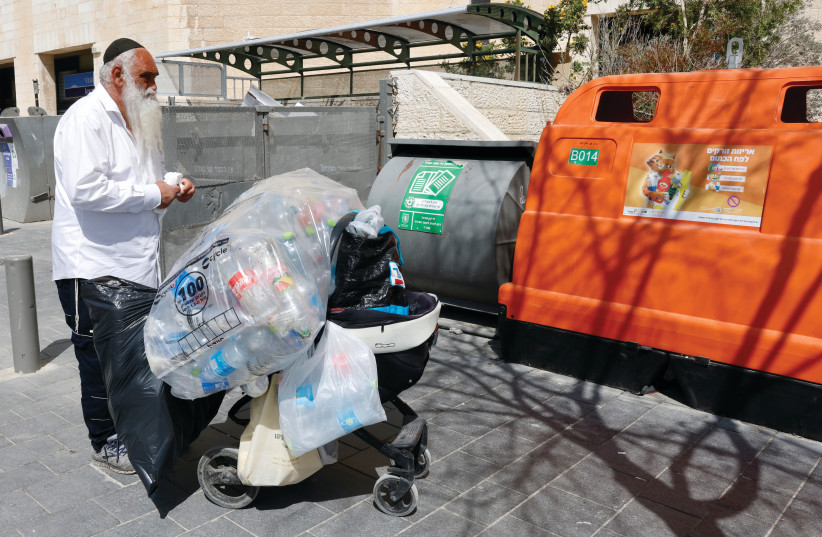The Environmental Protection Ministry said it would invest up to NIS 8.5 million to establish a glass sorting plant in the country.
“Establishing facilities for waste treatment is a significant step in the success of our waste plans and strategies and will lead to an increase in recycling and reduction in landfill rates,” said Environmental Protection Minister Idit Silman.
The ministry said that, to date, one of the main difficulties in completing the recycling chain in waste treatment is the need for more infrastructure.
Benefits of opening the facility
The ministry said about 130,000 tons of glass beverage containers are consumed annually in Israel. About 60% of them are collected under the Deposit Law. However, because the collected glass is not separated by color at the time of disposal and the cost of manually sorting the glass is so expensive, only about 15% of collected glass remains for recycling and melting into glass containers. Instead, the glass is exported as unsorted glass scraps for recycling abroad.
By establishing a color sorting facility, the glass can stay in the country and be recycled, reducing environmental damage from transportation, emissions and energy that needs to be invested in creating glass.

Color sorting is critical in the glass recycling process. Glass bottle manufacturers typically distinguish between three primary glass colors: clear, amber and green. Each color has a different value and tolerance for contamination. In the last decade, automated color-sorting systems have been designed to make the process easier.
According to the World Wildlife Fund, the glass produced from recycled glass reduces air pollution by 20% and related water pollution by 50%.
The ministry issued a tender to find a company or companies to establish the glass treatment and sorting facility. The ministry will provide about 40% of the establishment cost or up to NIS 8.5 million.
“The support for establishing a glass treatment and sorting facility is part of a broad and ongoing initiative by the ministry to encourage waste recycling and its use for new products per circular economy principles,” Silman said.
